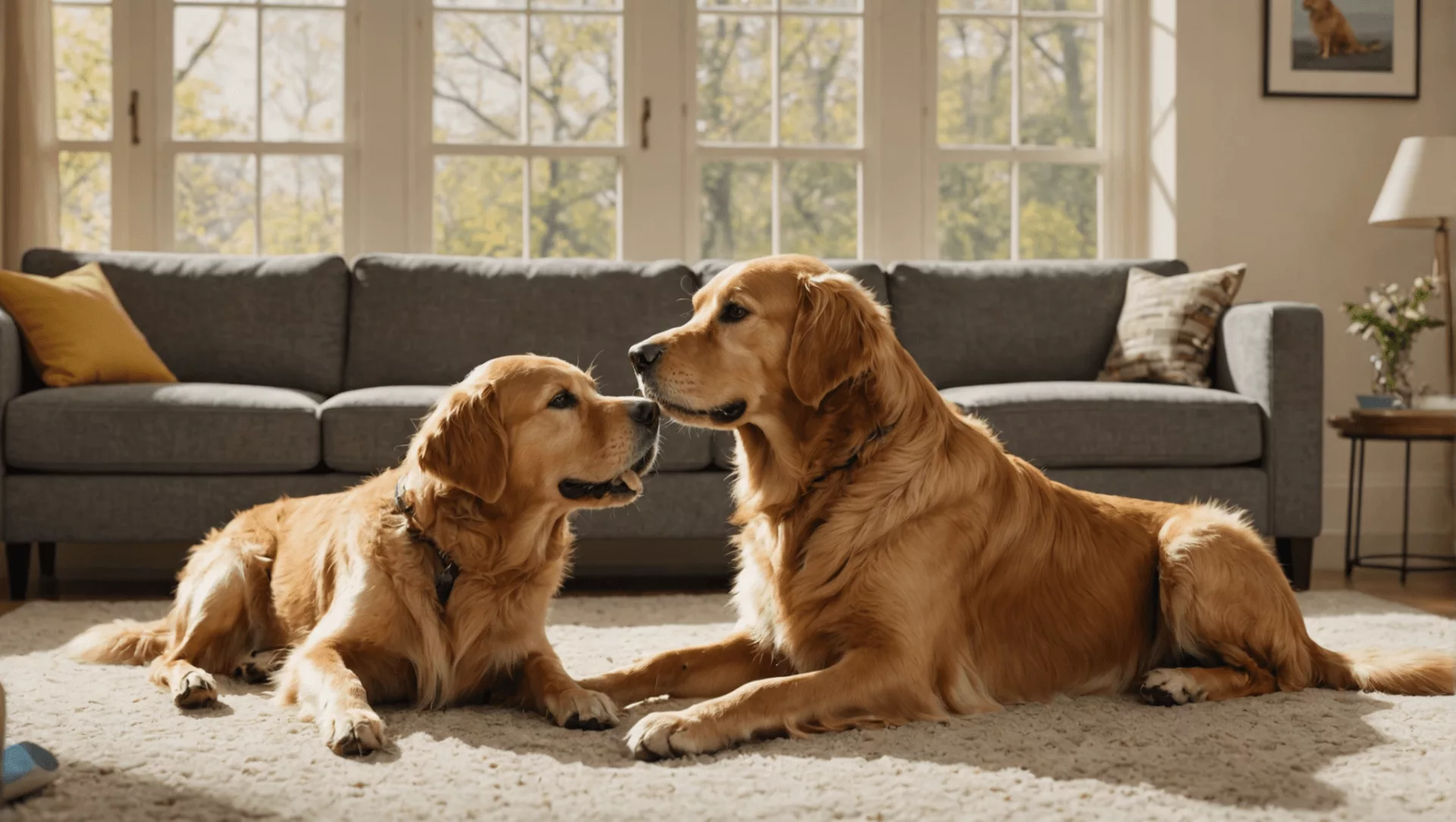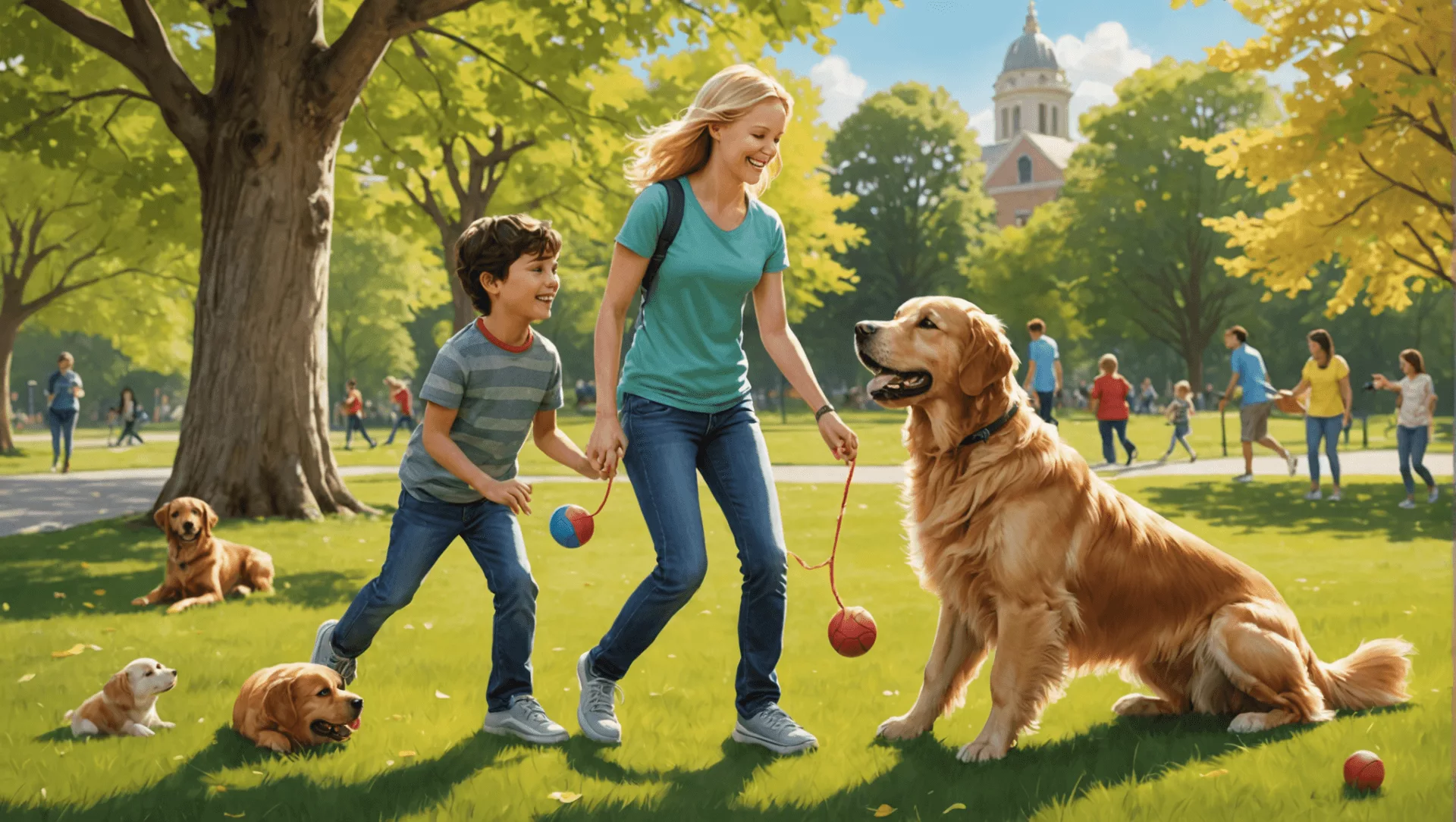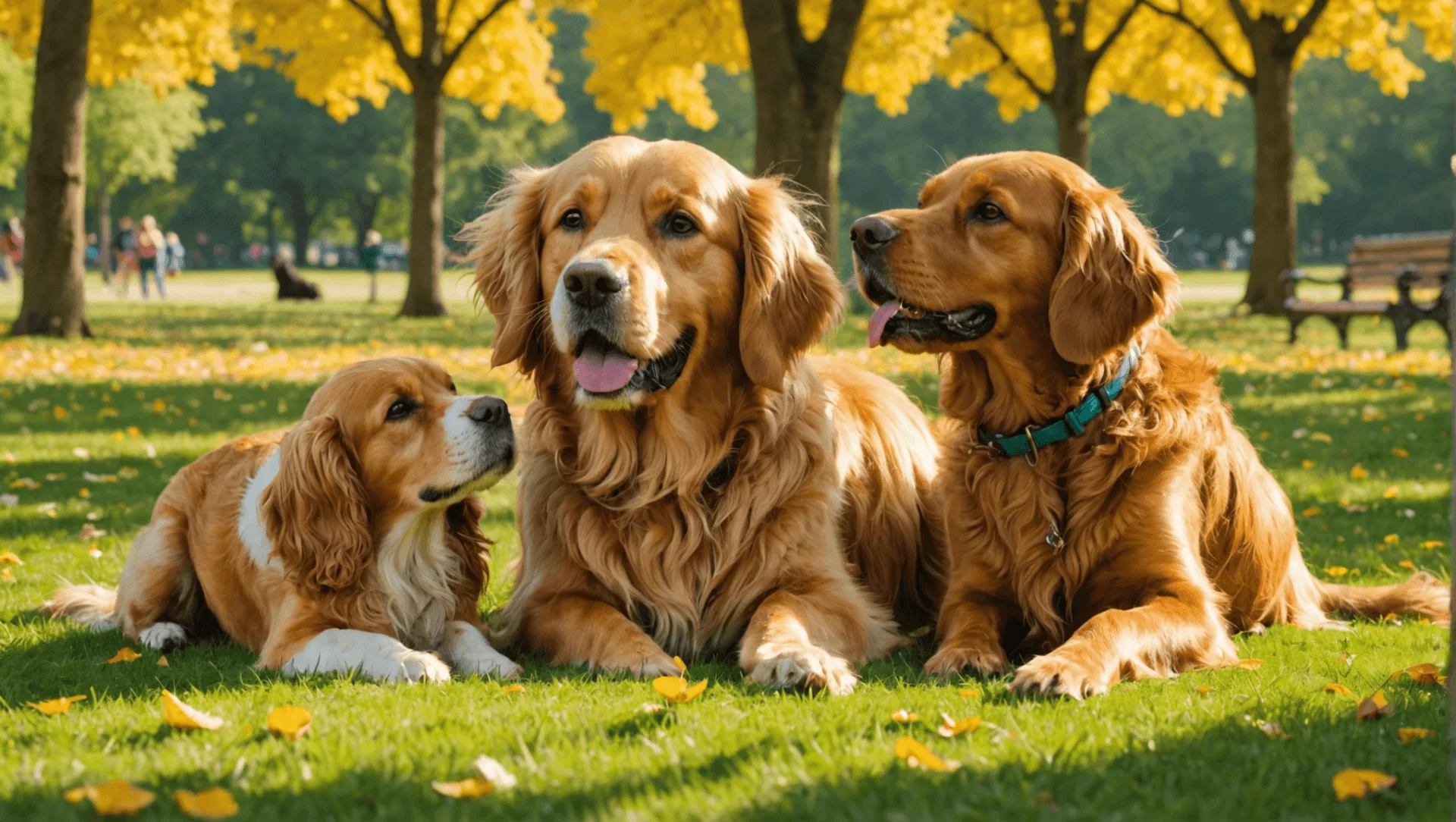For choosing a canine companion, many people wonder, “Are female dogs more affectionate?” Research shows that the way our furry friends express love and companionship can vary significantly based on their sex. Understanding these differences is crucial for potential dog owners, as it helps to match the right dog with the right family, ensuring both parties thrive in their relationship.
Exploring the traits of male versus female dogs reveals not only their unique behaviors but also how these traits can affect your experience as a pet owner. Ignoring these differences could lead to mismatched expectations and even dissatisfaction in your pet ownership journey. In this article, we’ll delve into the biological factors that shape dog behavior, examine evidence surrounding affection levels, and discuss the pros and cons of both male and female dogs.
By the end, you’ll have a clearer understanding of how sex influences canine personality and affection, empowering you to make a well-informed decision for your future pet.

Understanding the Differences Between Male and Female Dogs
Have you ever wondered if male and female dogs act differently? Let’s explore the fascinating world of dog behavior and find out what makes our furry friends unique!
Biological Factors Influencing Dog Behavior
Just like humans, dogs have hormones that can affect how they act. These tiny chemicals in their bodies can make male and female dogs behave in different ways. For example, male dogs might be more playful and energetic, while female dogs might be calmer and more nurturing.
Did You Know? Female dogs can have mood changes during their heat cycle, just like humans!
How Sex Affects Canine Personality Traits
While every dog is unique, some traits are more common in males or females:
- Male dogs often:
- Are more playful and energetic
- Show more interest in exploring their surroundings
- Can be more assertive
- Female dogs often:
- Are easier to train
- Form deeper bonds with their owners
- Can be more affectionate
But remember, these are just general trends. Your dog’s personality depends on many factors, not just whether they’re a boy or girl!
Dispelling Myths About Male vs Female Dog Temperament
Let’s bust some common myths about male and female dogs:
- Myth: Female dogs are always more affectionate. Truth: Both male and female dogs can be super loving! According to Wikipedia, a dog’s affection level depends more on their individual personality and breed than their sex.
- Myth: Male dogs are always more aggressive. Truth: Aggression can happen in both male and female dogs. It’s often linked to how a dog is raised, not just their gender.
- Myth: Female dogs are always easier to train. Truth: While some people think female dogs are easier to train, both boys and girls can be quick learners. It depends on the dog’s personality and how you train them.
Remember, every dog is special. Whether you have a boy or girl dog, what matters most is how you love and care for them!
Interactive Idea: Create a fun quiz where readers can guess whether certain dog behaviors are more common in males or females.
By understanding these differences, you can better care for your furry friend, no matter if they’re a boy or girl. The most important thing is to love and appreciate your dog for who they are!

Are Female Dogs More Affectionate? Exploring the Evidence.
Have you ever wondered if girl dogs are more loving than boy dogs? Let’s dig into this fun question and see what we can find out!
Research on Affection Levels in Male and Female Dogs
Scientists and dog owners have been trying to figure out if female dogs are more affectionate than male dogs. But guess what? It’s not as simple as we might think!
According to some studies, female dogs can be super loving, but they often show affection on their own terms. This means they might cuddle when they want to, not just when you want them to. Male dogs are often seen as more consistently affectionate and sociable. They might be more likely to follow you around and ask for pets all the time.
But here’s the thing: every dog is different! Just like people, dogs have their own personalities. Some girl dogs might be super cuddly, while some boy dogs might be more independent.
Did You Know? Dogs can understand up to 250 words and gestures, just like a 2-year-old child!
Breed-Specific Tendencies in Affectionate Behavior
The breed of your dog can also play a big role in how affectionate they are. For example, Golden Retrievers and Labrador Retrievers are known for being super friendly, no matter if they’re boys or girls. On the flip side, some breeds like Chow Chows or Shar-Peis might be a bit more aloof, regardless of their gender.
So, when thinking about how affectionate a dog might be, it’s important to look at their breed traits too. A female Golden Retriever might be more cuddly than a male Chow Chow, just because of their breed, not because of their gender.
How Nurture Also Plays a Role in Dog Affection
Here’s another important thing to remember: how you raise and train your dog matters a lot! A dog that gets lots of love, attention, and positive training is more likely to be affectionate, no matter if they’re a boy or a girl.
According to Dogster, things like socialization, training, and individual temperament play big roles in how affectionate a dog becomes. This means that if you give your dog lots of love and teach them to be friendly from a young age, they’re more likely to be affectionate as they grow up.
In the end, whether a dog is super cuddly or more independent depends on many things – their breed, how they’re raised, and their own unique personality. So, the next time someone asks if female dogs are more affectionate, you can tell them it’s not that simple!
Remember, every dog is special in their own way. The most important thing is to give your furry friend lots of love and care, no matter if they’re a boy or a girl. That’s the best way to have a happy, affectionate pup!

Male Dog Characteristics: Pros and Cons
Have you ever wondered if male dogs differ from female dogs? Let’s explore the world of male dogs and learn about their special traits, the good things about having one, and some challenges you might face.
Typical Behaviors Observed in Male Dogs
Male dogs often have their own unique ways of acting. They are more outgoing and show their love more openly than female dogs. This means they might give you lots of kisses and want to cuddle more often!
Did You Know? Male dogs are often more playful and energetic, especially when they’re young.
Male dogs also like to mark their territory by peeing on things. This is their way of saying, “This is my spot!” They might also be more interested in exploring the world around them and meeting new dogs.
Advantages of Choosing a Male Dog as a Pet
There are many substantial reasons to choose a male dog as your furry friend:
- Affection: Male dogs are often super loving and want to be close to their owners all the time.
- Playfulness: They usually love to play and can keep you entertained for hours.
- Easier training: Some people find male dogs easier to train because they’re eager to please their owners.
Male dogs can be noble companions for active families who enjoy outdoor activities and playtime.
Potential Challenges with Male Dog Ownership
While male dogs have many noble qualities, there are some things to keep in mind:
- Marking behavior: As mentioned earlier, male dogs like to mark their territory. This can be a problem if they do it inside your home.
- Aggression: Some male dogs might be more aggressive towards other male dogs, especially if they haven’t been neutered.
- Wandering: Male dogs might try to escape more often to find a mate if they’re not neutered.
It’s important to remember that every dog is different, regardless of whether they’re male or female. How a dog behaves depends a lot on their breed, how they’re raised, and their individual personality.
According to Rover, choosing between a male or female dog often comes down to what you prefer and what fits best with your family. Both male and female dogs can make wonderful pets!
Remember, the most important thing is to give your dog lots of love, proper training, and care, no matter if they’re a boy or a girl dog. With the right attention and training, any dog can become a perfect furry friend for your family!

Female Dog Traits: Advantages and Considerations
Have you ever wondered if female dogs differ from male dogs? Let’s explore the world of girl dogs and discover what makes them special!
Common Behaviors Exhibited by Female Dogs
Female dogs, like all dogs, have their own unique personalities. But some people think they might act a bit differently from boy dogs. Here are some things you might notice about female dogs:
- They can be very loving and form strong bonds with their human families.
- Some say they’re easier to train because they like to please their owners.
- They might be calmer and less rowdy than male dogs, especially when they’re grown up.
Did You Know? Female dogs can have puppies! Therefore, some people think they have stronger “motherly” instincts. These instincts often lead to a nurturing behavior toward not just their own pups but also towards other animals and even humans. Many studies have shown that dogs and their emotional bonds can significantly enhance their interactions with families, making them not only loyal companions but also sensitive caregivers. Understanding this unique aspect of female dogs can help owners appreciate the depth of their pets’ emotions and the strong connections they form with those around them.
Benefits of Adopting a Female Dog
There are lots of substantial reasons to bring a female dog into your home:
- They’re often smaller than male dogs of the same breed, which can be good if you live in a smaller space.
- Many people find them to be very affectionate and cuddly.
- They might not mark their territory as much as male dogs do.
According to a Reddit discussion on female dogs, many dog owners love how sweet their female dogs can be.
Potential Drawbacks of Female Dog Ownership
While female dogs are wonderful, there are a few things to think about:
- If they’re not spayed (a surgery to prevent them from having puppies), they’ll go into “heat” twice a year. This means they might act differently for a few weeks.
- Some female dogs can be more independent or less outwardly affectionate than male dogs.
- They might be more prone to certain health issues, like urinary tract infections.
It’s important to remember that every dog is unique! The Reader’s Digest article on male vs. female dogs explains that a dog’s personality depends more on their individual traits and how they’re raised than whether they’re a boy or girl dog.
In the end, whether a female dog is right for you depends on what you’re looking for in a furry friend. The most important thing is to give any dog you choose lots of love, care, and training to help them become the best pet they can be!

Factors Beyond Sex That Influence Dog Affection
For how loving and cuddly a dog is, there’s more to the story than just whether they’re a boy or girl dog. Let’s explore some other important things that affect how affectionate a dog can be!
How Breed Also Plays a Role in Dog Personality
Did you know different dog breeds can have distinct personalities? It’s true! Some breeds, like Golden Retrievers and Labrador Retrievers, are known for being super friendly. Others, like German Shepherds, might be more protective and less cuddly with strangers.
Did You Know? The American Kennel Club recognizes over 190 different dog breeds, each with its own unique traits! Understanding canine behavior is an important aspect of owning a dog, as it can help improve the relationship between humans and their furry companions. Different breeds have different temperaments, energy levels, and needs. By understanding canine behavior, owners can better meet their dog’s needs and create a harmonious living environment for both parties.
The Impact of Training and Socialization on Affection
How a dog is raised can make a big difference in how affectionate they are. Dogs that are well-socialized (meaning they meet lots of different people and animals when they’re young) are friendlier. Good training can also help a dog feel more confident and relaxed, which might make them more cuddly!
Individual Temperament Variations in Dogs
Just like people, every dog has its own personality. Even dogs from the same litter can have different temperaments. Some might be natural cuddle bugs, while others prefer their own space. It’s important to remember that each dog is unique!
Comparative Analysis of Male and Female Dogs’ Affection Levels
When we look at male and female dogs side by side, it’s hard to say for sure which is more affectionate. Some people think female dogs are more independent but can be very loving on their own terms. Others believe male dogs are more consistently affectionate with everyone.
Here’s what we know:
- Female dogs might be more choosy about when they show affection.
- Male dogs are often seen as goofier and more outgoing.
- Both can be incredibly loving pets!
The most important thing to remember is that a dog’s affection depends on many factors, not just whether they’re a boy or girl dog. Things like their breed, how they’re raised, and their individual personality all play a big role.
In the end, whether you choose a male or female dog, the love and care you give them will have the biggest impact on how affectionate they become. Every dog has the potential to be a loving companion with the right care and attention!
Conclusion
Understanding whether female dogs are more affectionate than males involves looking at various factors. Biological influences play a big role in how all sexes behave, with female dogs often showing strong nurturing instincts. Research shows that while female dogs might be more inclined to bond closely with humans, male dogs can also display significant affection, depending on their training and socialization.
Ultimately, the choice between a male or female dog should depend on individual personality traits and breed characteristics. As you consider bringing a new furry friend into your home, keep these differences in mind. This knowledge will help you find the perfect companion that fits your family’s needs and lifestyle.

